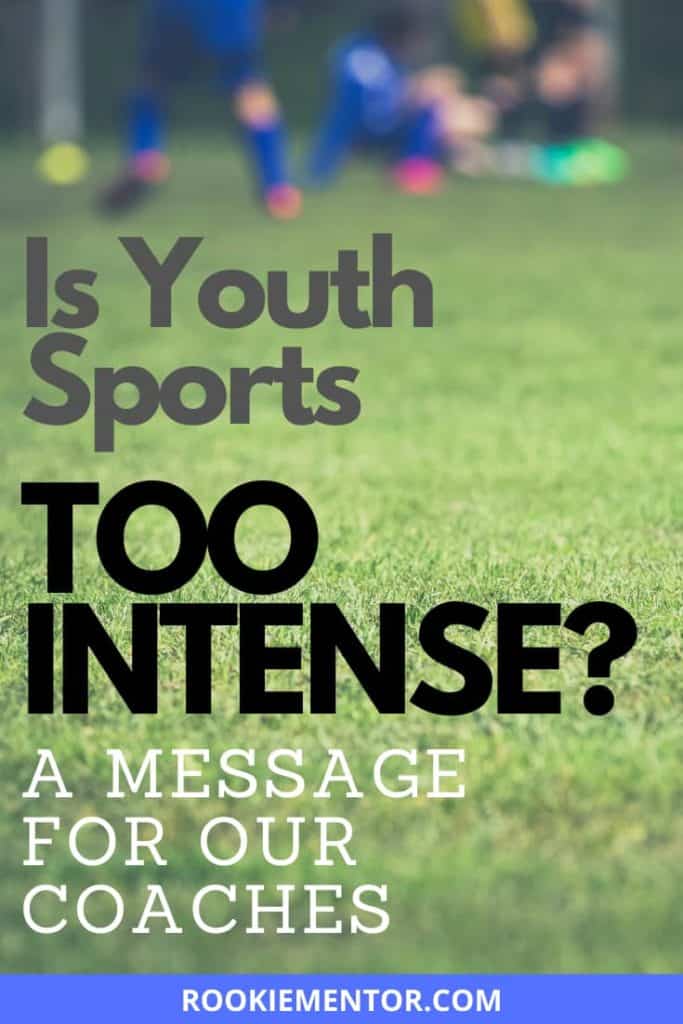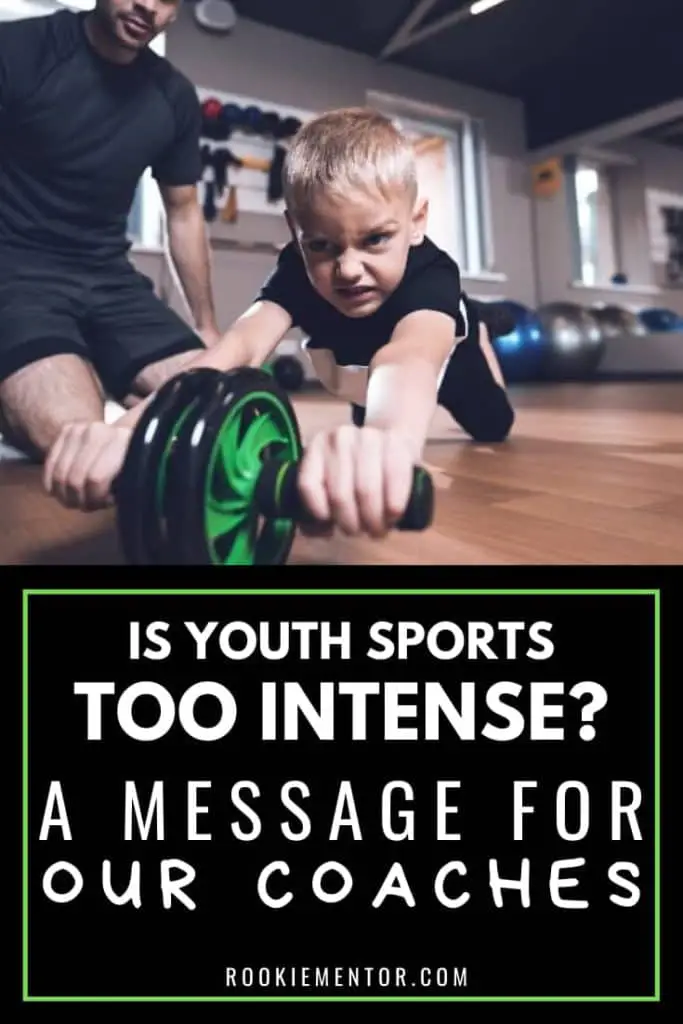The demand and intensity regarding the involvement for young athletes and parents in youth sports is ever increasing. However, the term “intense” and the way in which it is used can have a number of different meanings. At Rookie Mentor, our job is to educate coaches on creating an environment that fosters positive energy for athletes and parents alike and this article will show you how.
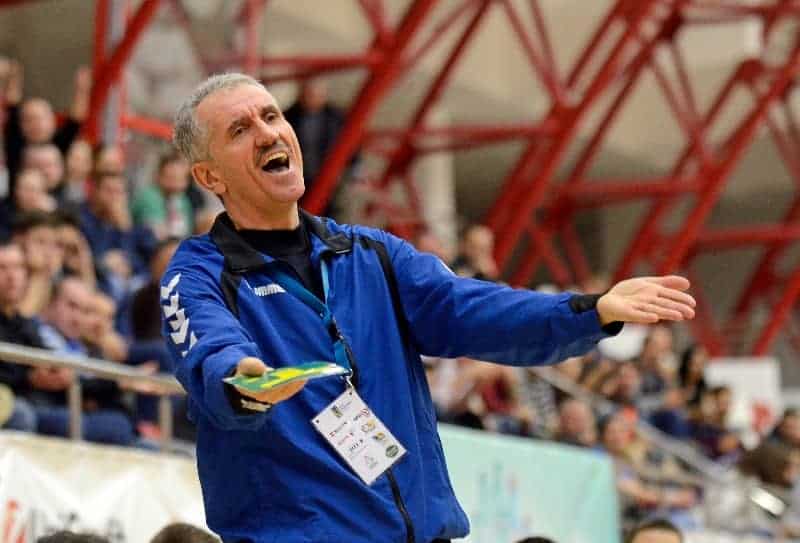
How can youth sport coaches stop kids and parents feeling too intense?
- Coaches need to create a welcoming environment
- Ensure the kids are enjoying themselves
- Maximize practice time rather than causing burnout
- Support interests outside your sport
- Competitiveness or future coaching aspirations never impact the kids best interest
The definition of intense is listed as “having or showing strong feelings or opinions; extremely earnest or serious.” The reason kids start sport is that it brings out positive emotions and they see it as fun. It’s an outlet for them and I’m sure they don’t wish to be involved in something too serious; pre-school or elementary school is hard enough as it is!
The same can be said for parents, who want to avoid another layer of stress and seriousness outside the rigors of work and daily life.
So what can we do as coaches to ensure our passion to help and teach the sport we love, doesn’t transition into feelings of extreme intensity for those in our team? We’ve grouped our views into 4 key areas we believe should always be at the forefront of your mind when coaching young kids.
Foster A Welcoming Environment
A recent study from the Aspen Institute states that kids quit most sports by age 11 and the average cycle within the sport is only 2.86 years on average.
Now a fair number of sports across the world are seasonal, so after 3 seasons of playing a given sport, the bulk of children are done and do not return.
The attention span of all humans is shorting now that we expect and can receive majority of things on demand, however, this staggered us upon reading.
The same study suggests that the primary reason parents place kids into sport in the first place is due to it being fun, whilst also developing sport skills, social skills and peer relationships. So as coaches, it’s our responsibility to ensure this remains the case.
When coaching your team, are you inclusive of all kids and parents? Have you spent time planning out your practice session to ensure that the kids are learning, whilst also being involved in activities that they believe are fun?
Do you regularly take time to speak with families to find out if their child is enjoying themselves and what you could potentially do to make the experience more enjoyable?
With coaching kids at such a young age, there is an element of teaching the fundamentals of the game. However, your challenge is to find ways to do it that they feel is “game” like or makes them have fun.
Don’t worry if you need to spend 10 minutes of the practice session playing duck-duck-goose (yes, I’ve done this myself), because the team has achieved it as a reward for doing something else you’ve asked.
The parents might initially question your rationale, but I’m sure they’ll be supportive when they understand why you were doing this and their child comes home with a big smile on their face!
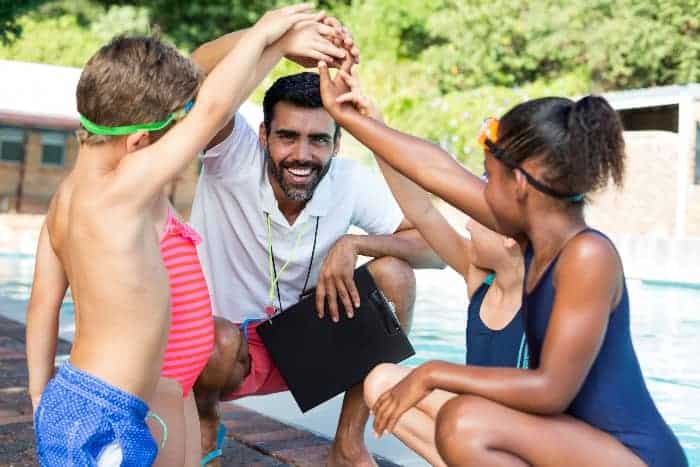
Speaking of parents, don’t be afraid to communicate with them regularly on how their child is feeling about coming to sports.
There is an old stigma in youth sports that coaches and parents should keep their distance. Now I’m a big believer of time and place, so in the middle of practice is not a good time to chat, but do make an effort to check in with every parent.
Open communication is important, as there will most likely be factors outside the sporting arena that could impact a child’s headspace. As a coach, creating that welcoming environment could be the thing they’ve looked forward to all week and turns that headspace around.
Less Is More
We’ve all watched those sports movies where a coach takes over a team that has been struggling and the reason they turn them around initially comes from spending hours upon hours of extra time at practice (think Coach Carter).
Or, when you were playing back in the day, you had a bad game and the first comments from your coach after were “we are going to spend extra time at practice this week.”
I’m here to remind you that you’re coaching youth sports and less is more.
There is no requirement to practice 2,3,4 times a week at such a young age.
Just because you haven’t performed how you would have liked in a game, doesn’t mean you need to find an extra practice session to correct those habits.
In all likelihood, the logistical challenges and costs associated with organizing that extra session far outweigh the benefits for coaches and parents alike anyhow.
The challenge for us coaches is to be able to do more with what we have.
By all means, you must look to improve on the areas you’ve identified at the next practice, but spend time putting together a session plan that addresses these areas and does so in a way that’s fun.
The kids don’t even need to know what you think the team’s weakness is. They might ask you to stop doing passing drills, but if you incorporate the skill into activities they enjoy, they just think about the good times had.
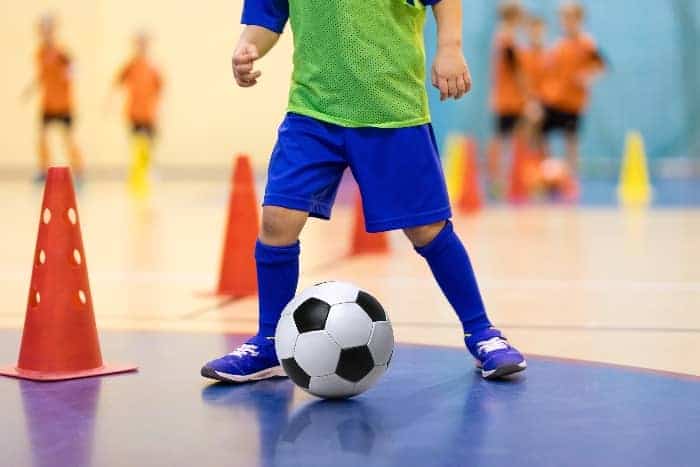
Single Sport Specialisation Is Wrong
In 2018, only 38% of kids ages 6 to 12 played team sports on a regular basis, down from 45% in 2008
We want to clarify, this article is to assist youth sport coaches, not those coaching high school children looking to jump into the college ranks. Therefore, we need to encourage participation across as many and whichever sports make our athletes happy.
Youth sport is not currently positioned like this; 45% of kids in the United States today only play a single sport (source). If I go back to my childhood, I was swimming, playing basketball and football all in the same period. I’m unsure how my parents managed this with 2 children, but I was so grateful for being able to play.
At no point did I ever feel high levels of intensity or stress, as each sport took a time commitment of 60-120 minutes per week. Enough to get my recommended daily exercise of 60 minutes per day!
Nowadays, that 45% of athletes playing a single sport are spending 11.9 hours per week on their craft. That’s 2 hours per day, over 6 days.
We can start to see why burnout is occurring at a much faster rate than it has in the past.
As coaches, when a player says that they’d like to try a different sport over the summer, be excited. Tell them that it’s great and you can’t wait to see the different types of skills they gain and that can be bought back to your team.
A 9-year-old has yet to develop into their body physically, so there are major benefits in having kids become multi-sport athletes at a young age. As an example, a baseball hitter’s aerobic capacity could increase greatly from playing basketball too.
Yes, you may have have issues with practice or game times clashing, though open up dialogue with parents and coaches and accommodate where you can.
Remember, it’s about the kid’s best interest and your responsibility is to ensure the child enjoys and stays in your sport as long as possible.
If you haven’t watched the short video below by ESPN called Don’t Retire, Kid, please do. It’s from their campaign addressing the crisis or kids quitting sports and bringing awareness to the issue.
Your Future Coaching Aspirations Can’t Impact The Kids
Coaching youth sports is extremely rewarding and for some, would love the opportunity to do it full time.
A number of people take the leap and start their own academies or training programs. Some will start at that level and look to eventually gain a position at a school or college. We’ve written an article previously on how to make money coaching youth sports, which you can check out here (link).
Now when going down this path, it’s important to not loose sight of why we coach kids in the first place – to create a positive environment and have fun.
Being a basketball fan, you’ve probably heard the term that the NBA is a “make or miss league“. Once you work your way up into the higher levels of sport, people are judged based upon results and records. Who they coached or what tournament they won can play a part in the next coaching opportunity or paycheck.
Unfortunately, I’ve seen this same mentality creep into youth sports, as some coaches, not all, believe this is the first stepping stone to bigger and better coaching opportunities.
Everybody needs to start somewhere and we support those who want to potentially coach for a living, however, this can not be at the expense of young children enjoying the game.
If you are good enough to coach at the highest level of your given sport, I can assure you nobody is going to remember that your U6 girl’s soccer team had a 4-12 record back in 2002.
Continue to learn your craft, challenge yourself to be a better teacher and mentor and judge yourself based upon how many smiles or thumbs up you get after practice. This will be your greatest reward!

Summary: Is Youth Sports Too Intense? A Message For Our Coaches
Coaches play an important role in the level of perceived intensity of youth sports.
Kids come to you for enjoyment and need your support when times might get a little tough. Parents want their kids to be happy, so if the child is excited about attending practice and games each week, this will take away any feelings of stress or intensity caused by the sport.
I’m sure there are other coaches or parents out there with advice on what makes for a less intense youth sports environment. Please share your thoughts amongst the community.
Cheers,
Daniel


